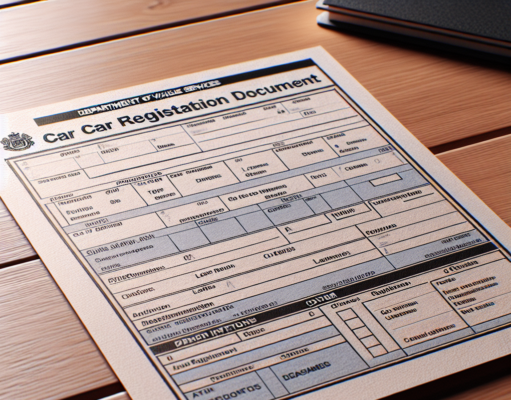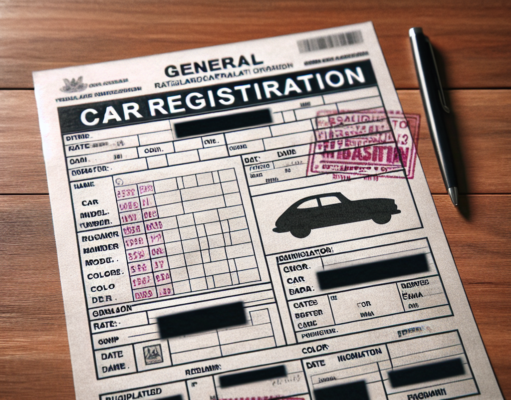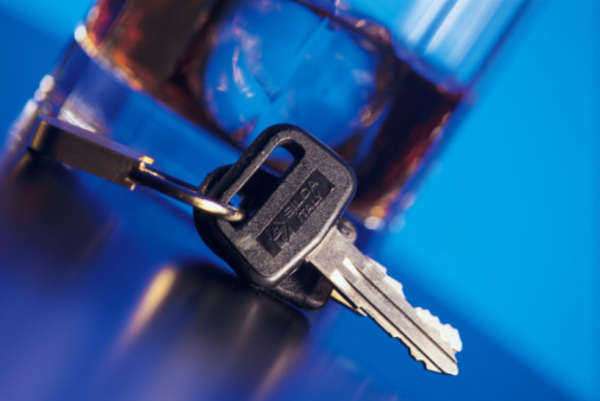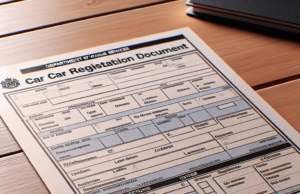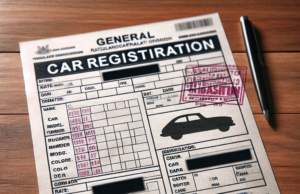
New Jersey Vehicle Registration: A Comprehensive Guide
Vehicle registration is an important process for every vehicle owner as it ensures that their vehicle has current insurance and meets state requirements for safety and emissions. In the state of New Jersey, vehicle registration is no exception. This article will provide a comprehensive guide to the NJ vehicle registration process and other related information about NJ motor vehicle regulations.
Types of Vehicles That Require Registration in NJ
The NJ motor vehicle laws mandate that most types of vehicles need registration. These vehicles include, but are not limited to:
1. Cars and trucks
2. Motorcycles
3. Trailers and semi-trailers
4. Buses
5. Motorhomes
6. Off-road vehicles
7. Scooters and mopeds
If you own any of these vehicles in New Jersey, you must register them with the Motor Vehicle Commission (MVC).
NJ Car Registration Requirements
To register a vehicle in NJ, the following requirements must be met:
1. Ownership: The vehicle owner must have all the required documentation establishing their ownership of the vehicle.
2. Age Requirement: The vehicle must be at least five years old or newer. If it’s older than five years, it must pass a state inspection before it can be registered.
3. Insurance: Before you can register your vehicle, you must have proof of insurance coverage provided by a NJ insurance company.
4. Inspection: All registered vehicles in NJ must receive a state inspection at least once a year to make sure they meet the state’s safety and emissions requirements.
5. Fees: Payment of the applicable registration fees is necessary to complete the registration process. It should be noted that the registration fee varies depending on the type of vehicle, its age, and weight.
NJ Vehicle Registration Process
The NJ vehicle registration process is straightforward and easy to complete. It can be done online, through the mail, or via a visit to one of the local MVC offices.
Online Registration:
New Jersey Motor Vehicle Commission (MVC) allows eligible vehicle owners to renew their registration online if they do not owe any money, there are no changes to your insurance, address, or other details.
To renew your registration online, follow these steps:
1. Visit the NJ Motor Vehicle Commission website.
2. Click on the “Renew Your Registration” tab under the Online Services section.
3. Provide the required information which includes your vehicle’s license plate number and insurance information.
4. Pay the applicable registration fees.
5. The MVC will mail you the registration renewal sticker or plate.
Mail-in Registration:
If you prefer to renew your registration via mail, the following steps will guide you:
1. Complete the NJ MVC registration renewal application form sent to you by mail.
2. Make sure you have included accurate information on the form
3. Make payment of the applicable renewal fees
4. The MVC will mail you the registration renewal sticker or plate.
In-person Registration:
Vehicle owners can also visit any of the MVC offices to register their car in person. This method is the best for those who have run into issues with their registration.
To register your vehicle in-person, follow these steps:
1. Visit any nearby MVC office.
2. Provide the required documentation to establish your ownership of the vehicle.
3. Provide your insurance information.
4. Pass the Safety and Emissions inspection.
5. Pay the applicable registration fees.
6. The MVC will issue you a temporary registration and license plates that are valid for 20 days. Your new registration and license plates will be mailed to you in a few weeks.
NJ Vehicle Registration Renewal
NJ vehicle registration is valid for one year and must be renewed annually. The renewal process is the same as the initial registration process. Vehicle owners may choose to renew their registration online, through the mail, or in-person. However, it is important to note that the renewal fees are slightly different from the initial registration fees.
To renew your registration, you will need:
1. Your vehicle information (vehicle identification number or plate number).
2. Your current NJ insurance information.
3. And a method of payment (credit card, debit card, or e-check).
NJ Vehicle Registration Cost
In New Jersey, vehicle registration fees are based on the vehicle’s weight, year, and make. Other factors such as the purchase of new license plates, inspection stickers, or registration renewal fees will also contribute to the final cost. Below is a table showing the registration fee based on vehicle weight.
Vehicle Weight | Registration fee
2,700 pounds or less | $46.50
2,701 to 3,500 pounds | $71.50
3,501 to 4,000 pounds | $96.50
4,001 to 5,000 pounds | $124.50
5,001 to 6,000 pounds | $149.50
6,000 pounds or more | $187.50
New NJ License Plates
New Jersey has recently introduced new license plates to replace the old style plates. The new standard issue license plates will feature colorful images of the state’s iconic landmarks and symbols such as lighthouses, the Jersey Shore, and the state’s famous tomatoes and blueberries. These plates are issued to newly registered or newly issued vehicles in NJ. Vehicle owners who choose to keep their old plates will be allowed to do so.
NJ Vehicle Title
A vehicle title is a legal document that proves ownership of a vehicle. It shows the name of the person or entity that owns the vehicle and any liens or loans on the vehicle. In New Jersey, it is compulsory for vehicle owners to have a title for their vehicle. The title should be completed when buying or selling a vehicle. The title transfer ensures that the new owner has legal ownership of the vehicle.
NJ Inspection Stickers
In New Jersey, all registered vehicles must undergo an annual safety and emissions inspection. This inspection helps to identify mechanical issues and ensure that your vehicle meets the state’s emissions standards. After a successful inspection, the MVC will provide the vehicle owner with a windshield sticker. The sticker will display the month and year that the inspection expires. The inspection sticker should be affixed to the lower passenger-side corner of the vehicle’s windshield.
Conclusion
Registering your vehicle in New Jersey is easy to accomplish with the right documentation and fees. It is important to comply with NJ vehicle registration requirements to avoid legal consequences such as fines and possible impoundments. In addition, vehicle owners should continue to ensure their vehicles are registered and insured to avoid the risk of being ticketed or penalized by the state’s motor vehicle commission. Remember to renew your vehicle registration annually, undergo an inspection, and obtain new license plates when necessary. The MVC website is a great resource to help guide you through your NJ registration process.
New Jersey Vehicle Registration: Everything You Need to Know
New Jersey is infamous for many things, but its strict vehicle registration laws are not one of them. Vehicle registration in the Garden State is compulsory for any car, truck, or motorcycle that is driven on public roads and highways. In this article, we will explore the process of registering a vehicle in New Jersey, including the required documents, fees, and deadlines. We will also cover related topics such as NJ car inspection, license plates, driver’s licenses, insurance, and emissions testing.
NJ Vehicle Registration Requirements
If you are a new resident in New Jersey, you must register your car within 60 days of moving to the state. If you have bought a new or used vehicle in New Jersey, you must register it within ten days of purchase. To register your vehicle, you should visit a motor vehicle agency (MVA) or use the online services provided by the NJ DMV.
Here is a list of documents you will need to bring with you to the MVA:
– Completed application for registration
– Proof of ownership (title, bill of sale, or lease agreement)
– Valid driver’s license or other government-issued ID
– Proof of insurance
– A valid NJ car inspection certificate
– Payment for fees and taxes
It is important to note that if you have a financed vehicle, you will also need to provide proof of lienholder information.
NJ Vehicle Registration Fees
The cost to register a vehicle in New Jersey varies depending on several factors. Here is a breakdown of the fees:
– First-time registration fee: $60
– Annual registration renewal fee: $60
– Title fee: $60
– License plate fee: $6.50 per plate
– Sales tax: 6.625% of purchase price
Some additional fees may apply if your vehicle is over a certain weight or you need special registration plates, such as personalized or disability plates.
NJ Car Inspection
Before you can register your vehicle in New Jersey, it must undergo a safety and emissions inspection. The NJ Motor Vehicle Commission operates an extensive inspection program to ensure that all vehicles on the state’s roads are roadworthy and environmentally friendly.
Here are some things you need to know about NJ car inspection:
– Your car should be inspected at a licensed NJ inspection station.
– Inspection stickers are valid for one year and expire on the last day of the month indicated on the sticker.
– NJ car inspection requirements include checking the brakes, steering, suspension, tires, lights, horn, windshield wipers, mirrors, and exhaust system.
– Emissions testing involves measuring the levels of pollutants emitted by your car’s engine. If your car fails the emissions test, you will need to have it repaired and retested before you can renew your registration.
– Some vehicles, such as electric cars and motorcycles, are exempt from emissions testing.
NJ License Plates
Once you have registered your vehicle in New Jersey, you will be issued a license plate. The type of plate you receive will depend on the type of vehicle you own, your registration class, and whether you have any special requests, such as personalized or vanity plates.
Here is some information about NJ license plates:
– Passenger vehicles are issued standard plates with the NJ state motto, “The Garden State.”
– Commercial vehicles are issued plates with a “C” prefix.
– Motorcycles are issued smaller, more streamlined plates with a “MC” prefix.
– Special plates are available for veterans, disabled persons, and alumni of certain colleges and universities.
– You can also apply for personalized plates with up to seven characters.
NJ Driver’s License
In addition to registering your vehicle, you may also need to apply for a New Jersey driver’s license if you are a new resident or have never had one before. Here are some key facts about NJ driver’s licenses:
– To apply for a driver’s license in NJ, you will need to visit an MVA or use the online services provided by the NJ DMV.
– You must be at least 17 years old to apply for a standard license or 16 years old to apply for a special learner’s permit.
– NJ driver’s licenses are valid for up to four years and must be renewed before they expire.
– To renew your NJ driver’s license, you will need to complete a vision screening, pay the renewal fee, and submit any required documentation.
NJ Car Insurance
New Jersey law requires all drivers to have valid auto insurance coverage that meets the state’s minimum requirements. If you are caught driving without insurance, you could face fines, license suspension, or even imprisonment.
Here are some things you need to know about NJ car insurance:
– The minimum insurance requirements in NJ include liability coverage for bodily injury and property damage, as well as personal injury protection (PIP).
– The minimum liability limits are $15,000 per person, $30,000 per accident for bodily injury, and $5,000 for property damage.
– PIP coverage pays for medical expenses, lost income, and other related costs if you or your passengers are injured in an accident.
– NJ car insurance rates can vary depending on your driving record, age, gender, location, and other factors. It is wise to shop around and compare rates from different providers to get the best deal.
NJ Emissions Testing
New Jersey is committed to reducing air pollution and protecting public health by enforcing strict emissions standards for vehicles. All cars and trucks registered in NJ must undergo an annual emissions test to ensure that they meet the state’s standards.
Here are some key points about NJ emissions testing:
– Emissions testing is included as part of the annual NJ car inspection process.
– The test measures the levels of pollutants emitted by your car’s engine, including carbon monoxide, hydrocarbons, and nitrogen oxides.
– If your car fails the emissions test, you will need to have it repaired and retested before you can renew your registration.
– Some vehicles, such as electric cars and motorcycles, are exempt from emissions testing.
Conclusion
Registering a vehicle in New Jersey can seem like a daunting task, but it is essential for anyone who wants to legally drive on the state’s roads and highways. By following the guidelines and requirements outlined in this article, you can ensure that your car is properly registered, insured, and inspected. Remember to stay up-to-date on registration renewal deadlines and inspection schedules to avoid any penalties or legal issues. Safe driving!
All motor vehicles, both new and used, must be registered with the State of New Jersey Motor Vehicle Commission before operating within the state. Different rules for New Jersey Vehicle registration apply when renewing your NJ registration versus applying for an initial NJ vehicle registration.
First-Time New Jersey Vehicle Registration
In New Jersey law, a motor vehicle is considered new if the vehicle has never received a title issued to any other individual other than the vehicle dealer before to the customer’s purchase. Leased vehicles are also considered new if the first retail purchaser is the leasing company and no other parties have previously purchased or leased the vehicle. This is applicable to passenger vehicles, and does not include omnibuses, school buses, or motorcycles. If you are registering your motor vehicle for the very first time in state New Jersey, you will be issued a one-year NJ registration for used cars.
The Motor Vehicle Commissions uses a Four-Year Accelerated Registration Program for New Jersey Vehicle Registrations, which requires all vehicle owners of brand new passenger vehicles to pay the NJ vehicle registration fee in full for a four-year period. If you have leased a new vehicle, you are required to pay the NJ registration fee for the entire term of the lease. If your lease agreement goes beyond the typical calendar year expiration period (for example, a 38-month as opposed to 36 month lease), you will be required to pay for that next year’s NJ vehicle registration period, or a full 48 months. The Motor Vehicle Commission does not issue refunds for any unused part of the four-year NJ registration
Renewing a New Jersey Vehicle Registration
In the state of New Jersey, most motor vehicles need to apply for an annual NJ vehicle registration renewal. To make this process easier, the Motor Vehicle Commission sends out an annual NJ registration renewal notice. This notice includes a PIN which can be used to renew an NJ vehicle registration either online or the phone. If you intend to renew your New Jersey vehicle registration online, there is a credit card convenience fee for the transaction. You can also call 877-DMV-NJ4U (877-368-6548) to update your NJ vehicle registration. If you wish to renew your New Jersey vehicle registration by mail, you will be provided an envelope with the renewal notice.
Alternatively you can mail your New Jersey vehicle registration renewal directly to the Motor Vehicle Commission.
New Jersey Vehicle Registration and Title Fees
There are many different fees that are applied during the NJ registration process. The basic registration fee varies depending on the weight class and model of a vehicle, but automobiles will usually range between $35.50 and $84. The fees for certain non-commercial motor vehicles can range anywhere between $12 and $94. Other fees that may be applied to the NJ vehicle registration process include:
• NJ registration transfer fee: $4.50
• Convenience Fee (Online NJ vehicle registration renewal): $2
• Transfer of ownership fee: $60 or $85 with a lien


